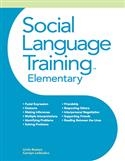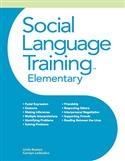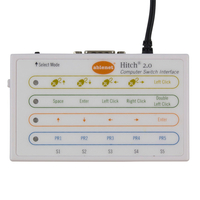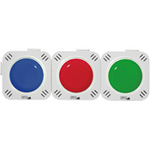SOCIAL LANGUAGE ELEMENTARY

Description
Ages:6–11
Grades:1–6
Here is a developmental, evidence-based program for social language skills. This program is based on the results of theSocial Language Development Test–Elementary, research, and practical experience. Students learn to recognize, understand, and successfully deal with positive and negative social situations. Units of the book are arranged in order of general skill complexity and development. Specific skills addressed include:
Interpretation of facial expressions, gestures, and nonverbal language
- compare and contrast facial expressions
- interpret facial expressions and gestures appropriately
- understand the vocabulary for describing and interpreting emotions
Making inferences
- pay attention to relevant details and ignore irrelevant ones
- use context, body language, and other clues to make reasonable inferences
Problem solving
- identify problems
- predict the consequences and choose the best solution
- evaluate the results
Multiple interpretations
- observe details
- differentiate important from unimportant details
- use logic
Friendship
- think about how others might feel
- understand how friends act toward each other
- handle difficult social situations appropriately
- support friends and preserve friendships
Respecting others
- how to show respect to peers, siblings, and adults
Interpersonal negotiation
- identify the qualities of a good friend
- disagree tactfully
- seek mutual resolutions to problems
- use persuasion effectively
Reading between the lines
- interpret nonverbal communication, sarcasm, and tone of voice
- the use of vague communication
Students focus on specific social language skills while using the activity sheets for discussion; sharing related personal experiences; and scripting, if necessary. Scene illustrations segue into role-playing. The need for writing is minimal.
To see more of this product's contents:
184 pages • 8.5 x 11, softcover • ©2009
SOCIAL LANGUAGE ELEMENTARY





